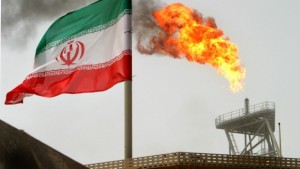 With oil prices in free fall, the more oil-rich OPEC member states, which chiefly depend on oil exports, are revising their projected revenues for their upcoming budgets downward and placing spending cuts on their agendas. Iran, as one of the top holders of energy resources in the world, is no exception, and senior officials have recently said it has suffered over $100 billion in revenue losses over the oil nosedive.
With oil prices in free fall, the more oil-rich OPEC member states, which chiefly depend on oil exports, are revising their projected revenues for their upcoming budgets downward and placing spending cuts on their agendas. Iran, as one of the top holders of energy resources in the world, is no exception, and senior officials have recently said it has suffered over $100 billion in revenue losses over the oil nosedive.
Already hit with years of Western sanctions over its nuclear program, the government of President Hassan Rouhani now finds itself facing a new source of pressure since oil prices have fallen 60% from their June 2014 peaks. In its proposed budget for the upcoming Iranian calendar year, which begins March 21, the government initially proposed a spending scheme based on the crude oil price of $72 a barrel. But with the continued slump in the energy markets, this figure was later lowered to $40 per barrel. For comparison, last year's budget was calculated assuming $100 per barrel of oil.
Meanwhile, Saudi Arabia, as the world's largest producer of crude oil and another OPEC member, has similarly admitted that the precipitous fall in oil prices since June will leave Riyadh with its first budget deficit since 2011. Some in Iran have lashed out at Saudi Arabia, accusing it of conspiring with the West to keep oil prices low in a bid to put more pressure on Tehran. On Jan. 13, Rouhani also warned that any countries contributing to the fall in global oil prices would regret the move and warned that Saudi Arabia and Kuwait would suffer alongside Iran.
This article was written by Maysam Bizær for Al-Monitor on January 24, 2015. Maysam Bizær is a freelance journalist and translator in Iran who focuses on Iran's foreign policy and nuclear program. He has worked for and contributes to various media outlets in Iran . On Twitter: @m_bizar
The Iran Project is not responsible for the content of quoted articles.

 QR code
QR code